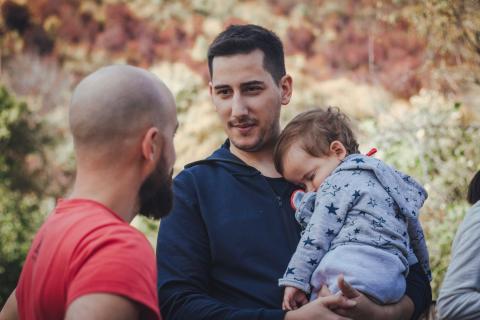6 Tips for Supporting Kids Through Change

Children are continually facing change by way of having new experiences and making discoveries. Although change can be positive in some ways, it can also have its difficulties and downsides. Change can be hard for kids to face, especially if the change is unexpected and could have a significant influence on their life. Starting at a new school, their best friend moves away, or their parents are separating can all throw a child's routine for a loop.
Changes like their parents' separation can be tough for children to cope with. They may not understand why things are changing at all, and they may experience some intense emotions like anger, fear, and sadness. As a parent, you may want to do all you can to protect your kids from the problematic aspects of change, but while you might not be able to stop the changes from taking place, you can help to make this new situation easier to them to handle.
Healthy Strategies for Coping with Change
Whether your family is facing a change in structure by way of separation or your child is experiencing significant changes in their life outside of your family, here are six tips for how you can support your kids through change.
Let them talk about it
Keep up a conversation about whatever is going on. Encourage your children to share their feelings with you and with other trusted individuals in their lives. Listen attentively, and let them know that it's okay to have the emotions they are experiencing. More than just your children, talk to the other adults in their lives about how they are doing. When those closest to them are aware of what they are going through, they will be more equipped to offer the right support to your kids.
Remind them that it's not their fault
In the midst of a difficult transition, kids may be prone to believe that they might have had some role to play in the change. Be sure to tell them—then remind them—that it wasn't their fault. Even if they've heard it once, it might help them to listen to it again so that they may be able to realize and take this truth to heart.
Let them grieve
You can't stop all big changes from happening, nor can you expect for them to be completely fine by telling them that they will be. Give your children some space to grieve what they are losing. Be sure that they are not wallowing all day in sadness or worry, but do let them get their emotions out in a healthy way. Support them through these difficult moments.
Keep some things the same
Find areas of your children's routine that can remain as they've always been. Kids thrive when they know what to expect, so having some regularity to hold on to can prove to be a great source of comfort for them. Protect these things as much as you can for your children.
Show them what they can control
When this change is out of their hands, it can help them to see what is under their control. Ask them to consider what in their life they do have the ability to make choices about. This may help to give them a sense of power and security amidst everything that is transitioning around them.
Keep a positive outlook on the future
As hard as this time might be, help to keep your kids always looking ahead for the better. Help them see how the future is bright despite how difficult this time might feel. If there are healthy things that they can do to reach a happier today sooner by making new friends or pursuing new interests, encourage them to follow those paths.
Going through a time of intense change can be a big obstacle for any person, but kids might have a harder time overcoming these pitfalls. Be a force of positive support for your children as they meet and overcome any transitions they are faced with so that they only come out stronger on the other side.


